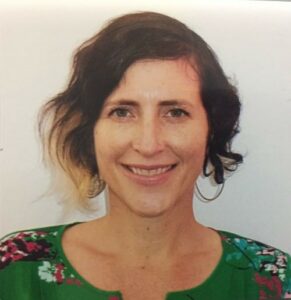NYAS Lecture 12/2: Ethnoprimatology: Toward the Sustainable Coexistence of Human and Nonhuman Primates in the 21st Century
 Mark your calendar for December 2nd as the New York Academy of Sciences lecture series continues with Dr. Erin P. Riley, Professor, Department of Anthropology, San Diego State University, Treasurer on the Board of Directors of the American Society of Primatologists, who will be presenting, “Ethnoprimatology: Toward the Sustainable Coexistence of Human and Nonhuman Primates in the 21st Century.” Dr. Larissa Swedell, Professor, Department of Anthropology, Queens College & CUNY Graduate Center Honorary Research Associate, University of Cape Town, will act as discussent. The event will be held at 5:45 PM at the Roosevelt House, 47-49 E 65th St, New York, NY 10065.
Mark your calendar for December 2nd as the New York Academy of Sciences lecture series continues with Dr. Erin P. Riley, Professor, Department of Anthropology, San Diego State University, Treasurer on the Board of Directors of the American Society of Primatologists, who will be presenting, “Ethnoprimatology: Toward the Sustainable Coexistence of Human and Nonhuman Primates in the 21st Century.” Dr. Larissa Swedell, Professor, Department of Anthropology, Queens College & CUNY Graduate Center Honorary Research Associate, University of Cape Town, will act as discussent. The event will be held at 5:45 PM at the Roosevelt House, 47-49 E 65th St, New York, NY 10065.
Please note: the lecture begins at 6:30 PM, and while the event is free to attend pre-registration is required for entry into the building. Early registration is strongly recommended, since seating is limited. For the buffet supper, registration is also required.
In the U.S, primatology – the study of our closest living relatives – secured a home within the subfield of biological anthropology as a way to provide insight into human origins and the evolution of human behavior. In recent years, a new research approach – ethnoprimatology – has given primatology an expanded purpose in anthropology. Ethnoprimatology examines the multifaceted ways the histories, ecologies, lives, and livelihoods of humans and primates intersect. Most remaining populations of primates live in environments that have been influenced in some way by humans (e.g., protected forests bisected by major roads, forest-farm edges, and urban centers). Ethnoprimatology considers these environments where humans and other primates interface its primary concern, recognizing the value of studying how humans and other primates behave together, co-shaping each other’s ecology, sociality, and evolutionary trajectories. In this talk, I will explore the field of ethnoprimatology with some examples from my field research on the human-macaque interface in Indonesia to demonstrate the promise the ethnoprimatological approach shows in fostering an integrative anthropology, more pluralistic approaches to scientific inquiry, and the sustainable coexistence of humans and otheprimates in the 21st century and beyond.
About the Speaker:
Erin P. Riley is a Professor in the Department of Anthropology at San Diego State University, and is currently serving as Treasurer on the Board of Directors of the American Society of Primatologists. Drawing from primatology, conservation ecology, and sociocultural and environmental anthropology, her research focuses on primate behavioral and ecological flexibility in the face of anthropogenic change and the conservation implications of the ecological and cultural interconnections between human and nonhuman primates. With notable publications in American Anthropologist, Evolutionary Anthropology, American Journal of Primatology, and Oryx, her work spearheaded the field of “ethnoprimatology.”
All talks in this series take place at Roosevelt House, 47-49 E 65th St, New York, NY 10065. A dinner and wine reception will precede the talk: Buffet dinner at 5:45 PM. ($20 contribution for dinner guests/free for students). Lectures begin at 6:30 PM and are free and open to the public, but registration is required.